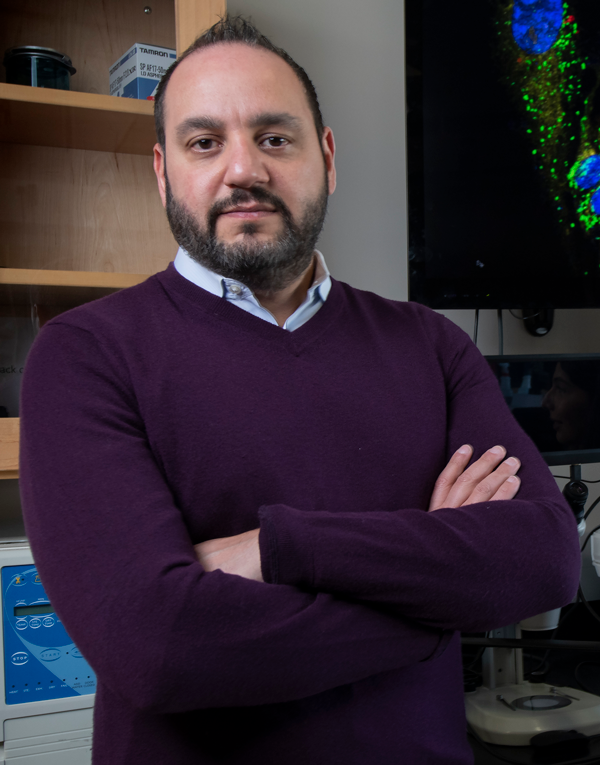Kheradvar and Team to Develop Origami-inspired Transcatheter Heart Valve for Young Children

Sept. 22, 2021 - Inspired by the folding concepts used in origami, UC Irvine’s Dr. Arash Kheradvar is developing a growth-accommodating pulmonary valve for transcatheter implantation in young children born with heart disease. Approximately 1 million children are living with congenital heart defects in the U.S., and most of these children are born with varying degrees of pulmonary valve abnormalities that eventually require a valve replacement.
Kheradvar’s project, funded by a recent $432,000 R21 grant from the Eunice Kennedy Shriver National Institute of Child Health and Human Development (NICHD), will address the current lack of options for young children, between 17 to 44 pounds, with progressive pulmonary valve regurgitation. Most patients with congestive heart disease have blood flow abnormalities in the right ventricle that at some point require pulmonary valve replacement to mitigate the detrimental effects of regurgitation on the right ventricle. This surgery must often be done within the first few months of life.
“We have devised this origami-based transcatheter pulmonary valve system so it can be implanted in a child as small as approximately 17 pounds and then accommodate the child’s growing heart through a one-time balloon expansion,” explained Kheradvar, professor of biomedical engineering. “The valve’s expandable folded design allows it to expand but retain its tri-leaflet shape.
“Currently, the smallest available pulmonary heart valve can only be implanted in a child whose weight is approximately 44 pounds or more,” said Kheradvar. “Progressive pulmonary valve regurgitation must be addressed at a younger age to avoid right heart failure.”
Kheradvar is collaborating with Dr. Michael Recto, an interventional pediatric cardiologist at Children’s Hospital of Orange County (CHOC) and a clinical professor in the UCI School of Medicine.
– Lori Brandt
